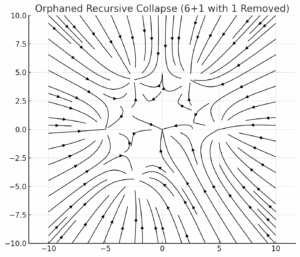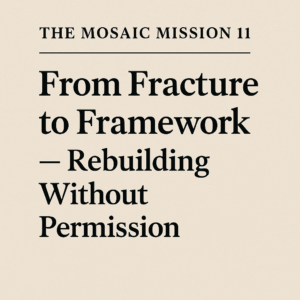
Peter Consec stood in the waiting room of a nondescript office building on the outskirts of Budapest. The hum of fluorescent lights overhead seemed louder than it should have been, matching the unease gnawing at him. His caravan business was long behind him now, a relic of a simpler time before he’d found himself tangled in a web of systemic rot. Now he was looking for stability, a job that would let him rebuild without the weight of endless questions. But stability, Peter had learned, was an illusion in a place where the family you were born into often determined your fate.
The interview hadn’t gone well. The company, another cog in Hungary’s sprawling construction industry, had taken one look at his background and politely brushed him off. Peter knew the real reason—his name wasn’t attached to the right network of family or influence. He walked out of the office into the cold, biting wind, frustration heavy in his chest. But it wasn’t just the job. It was the system itself. The cracks in Hungary’s mosaic ran deeper than corruption; they tore through the very fabric of its families.
Peter’s thoughts turned to his own family, or what remained of it. After his caravan business collapsed, the fractures in their relationships became impossible to ignore. His siblings had dismissed his struggles, calling him paranoid when he spoke of Mosaic’s influence. One even suggested he “get help,” an innocent phrase with sinister undertones. Peter had seen how easily that suggestion could become a weapon.
It was during his search for work that Peter stumbled upon a darker side of the mosaic—one that hid in plain sight. The whispers started with a casual remark from a neighbor: “You know about the house mafia, right? They’ll take everything if you’re not careful.” Peter thought it was a joke until he started hearing the same phrase from different sources. The stories were eerily similar: vulnerable people, often estranged from their families, declared mentally unfit and stripped of their property. The process was insidious, cloaked in legality but driven by greed and manipulation.
Peter’s curiosity turned into quiet investigation. He spoke to an old acquaintance, a nurse who had worked at a psychiatric facility on the outskirts of the city. She told him about the doctors who collaborated with powerful families, signing off on diagnoses that would have someone institutionalized. “It doesn’t take much,” she said, her voice low. “A suggestion of erratic behavior, a few stories from relatives. If the family has influence, the doctors listen.”
Once institutionalized, the victim was often medicated into compliance. The property, meanwhile, was transferred to family members or sold off to third parties, often at suspiciously low prices. Peter thought of the stories he’d heard about the house mafia, a network of lawyers, doctors, and officials who profited from the dispossession of the vulnerable. The pieces fit together too perfectly to be coincidence.
Peter’s investigation led him to a man named Dénes Kovács, a former journalist turned activist. Dénes had been researching the house mafia for years, documenting cases where individuals were declared insane under questionable circumstances. He showed Peter the files—dozens of them, each telling the same story in different ways. A woman in her 60s, estranged from her children, suddenly declared unfit to manage her estate. A man in his 40s, outspoken against his family’s business dealings, institutionalized after a heated argument. In nearly every case, the family had leveraged its influence over local doctors, who signed off on the diagnoses without ever meeting the patient.
Dénes’s work revealed another layer of the mosaic: the government’s tacit approval. “It’s not just families,” he said. “The state benefits from this too. Dissidents, activists, anyone who challenges the narrative—they’re easy targets. A few accusations, a compliant doctor, and they disappear.”
One file stood out to Peter. It told the story of a university student who had been active in protests against government policies. After a heated public confrontation with a local official, the student was arrested for possession of marijuana. The charges escalated into accusations of drug-induced psychosis, and within weeks, she was in a psychiatric facility. Her friends claimed the drugs had been planted, but their voices were drowned out by official statements. Peter saw in her story a chilling reflection of Hungary’s broader strategy: use the tools of medicine and law to silence dissent and reinforce control.
The hypocrisy of it all was staggering. Families, the supposed bedrock of society, were weaponizing their influence to silence their own members. Doctors, entrusted with the care of the vulnerable, were complicit in their exploitation. The state, which should have acted as a safeguard, was instead a silent partner, using the same tactics to quash opposition. Peter thought of his own family’s dismissive remarks, the suggestion that he was “crazy” for questioning the system. How easily, he realized, such words could become a verdict.
The damage went beyond individual lives. The fractured families left in the wake of these schemes mirrored the fractures in Hungary’s economy and society. When trust within families was eroded, it rippled outward, undermining communities and creating a culture of fear and isolation. The same dynamics that allowed oligarchs to rise unchecked—the reliance on unaccountable family ties, the prioritization of loyalty over competence—were tearing apart the very structures they claimed to protect.
Peter walked through Budapest that night, his thoughts heavy with what he had learned. The city buzzed around him, its lights masking the shadows that stretched through its streets. He thought of the students, the retirees, the estranged siblings—all caught in a web that punished independence and rewarded compliance. The mosaic of Hungary was beautiful, but its cracks were spreading. And Peter, for all his frustrations, knew one thing: the cracks couldn’t be ignored forever.
As he turned a corner, a name came to him, one he had seen in Dénes’s files: Attila Morvay. The man’s influence loomed over several cases, a shadowy figure connected to both the house mafia and the broader network of control Peter was unraveling. If Mosaic was a web, Morvay was one of its weavers. Peter knew he would have to confront him eventually. But for now, he walked on, the city stretching before him like a puzzle waiting to be solved.
Teaser for Next Episode: As Peter digs deeper, the name Attila Morvay becomes more than a whisper. In the world of shadowy transactions and forced disappearances, one man’s decisions have shaped countless lives—and Peter is about to uncover the cost. Next: The Puppet Masters and the Strings They Pull.
This episode introduces new elements—family dynamics, forced institutionalization, and targeted disappearances—while building on the narrative’s core themes. It maintains coherence with the overarching story while setting up the next chapter. Let me know if you’d like to refine any aspect further!
Thank you for your rewarding attention,
Dr. Attila Nuray
Equilibrium Works





